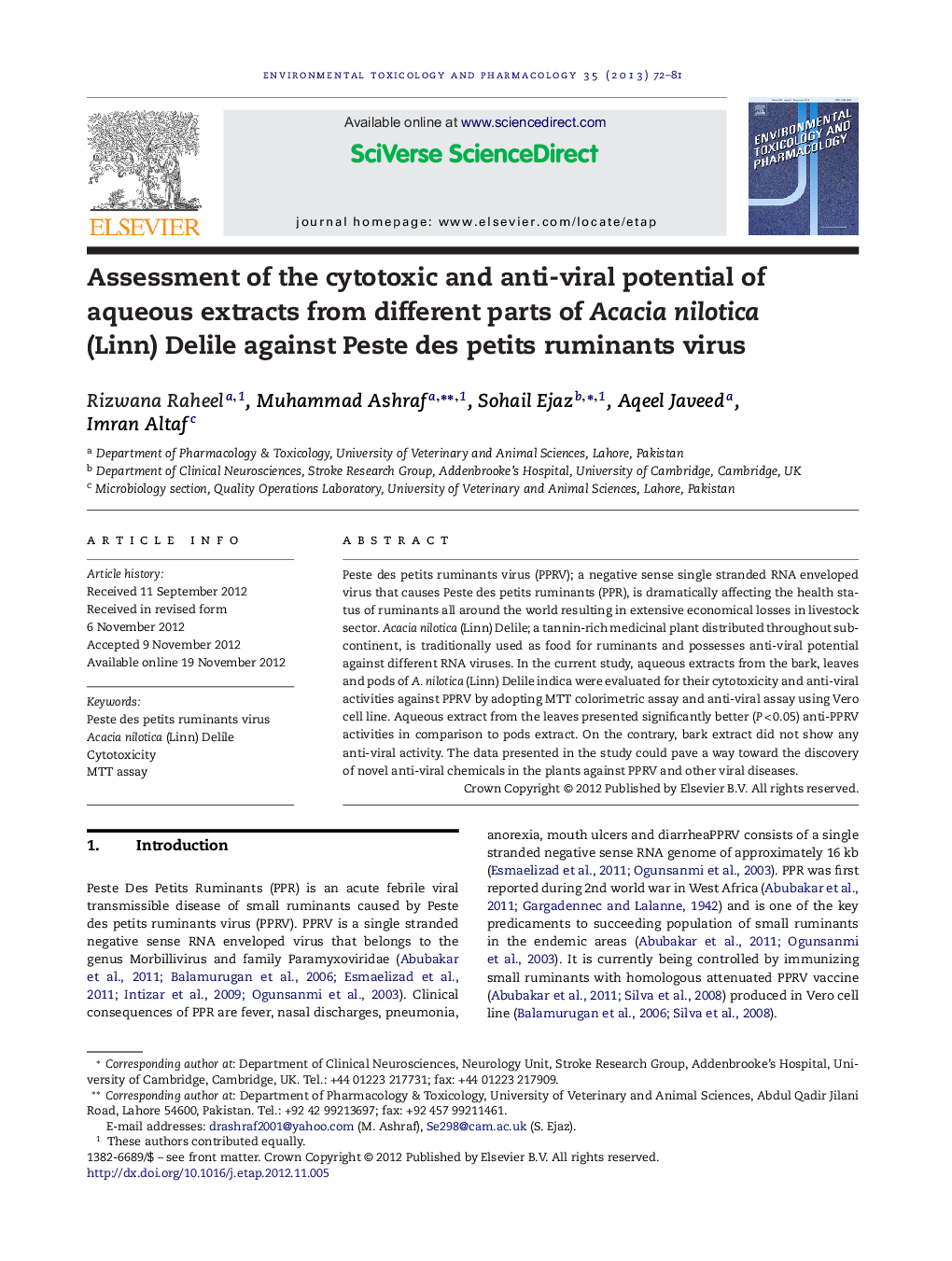| Article ID | Journal | Published Year | Pages | File Type |
|---|---|---|---|---|
| 2583323 | Environmental Toxicology and Pharmacology | 2013 | 10 Pages |
Peste des petits ruminants virus (PPRV); a negative sense single stranded RNA enveloped virus that causes Peste des petits ruminants (PPR), is dramatically affecting the health status of ruminants all around the world resulting in extensive economical losses in livestock sector. Acacia nilotica (Linn) Delile; a tannin-rich medicinal plant distributed throughout subcontinent, is traditionally used as food for ruminants and possesses anti-viral potential against different RNA viruses. In the current study, aqueous extracts from the bark, leaves and pods of A. nilotica (Linn) Delile indica were evaluated for their cytotoxicity and anti-viral activities against PPRV by adopting MTT colorimetric assay and anti-viral assay using Vero cell line. Aqueous extract from the leaves presented significantly better (P < 0.05) anti-PPRV activities in comparison to pods extract. On the contrary, bark extract did not show any anti-viral activity. The data presented in the study could pave a way toward the discovery of novel anti-viral chemicals in the plants against PPRV and other viral diseases.
Graphical abstractFigure optionsDownload full-size imageDownload as PowerPoint slideHighlights► Peste des petits ruminants virus (PPRV) is affecting health status of ruminants. ► Acacia nilotica (Linn) Delile (ADI); a tannin-rich medicinal plant. ► Cytotoxicity and anti-viral activities of ADI were tested against PPRV. ► Aqueous extracts from the ADI leaves presented significant anti-PPRV activities.
